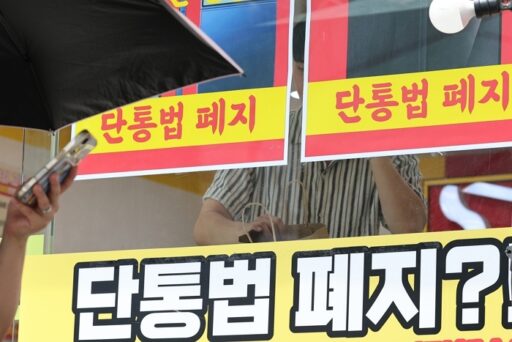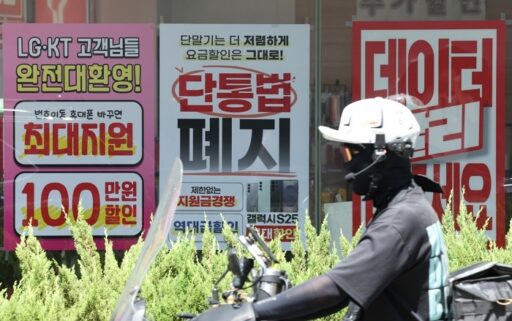**Crisis for SKT, Seizing a Perfect Opportunity for a Reversal**
On the 22nd, the Device Distribution Structure Improvement Act (hereinafter referred to as the "Device Subsidy Act") was abolished after 11 years, throwing the domestic telecommunications market into turmoil. Analysts suggest that the abolition of the Device Subsidy Act may turn into an opportunity for SK Telecom, which has been suffering from hacking incidents and penalty controversies.
According to the telecommunications research agency Consumer Insight, 32% of respondents stated that they would consider switching their mobile carrier if subsidy competition resumed after the abolition of the Device Subsidy Act. This figure is nearly double that of the second half of last year, indicating a heightened competition among telecommunications companies to attract subscribers.

In this context, SK Telecom has launched aggressive discounts and marketing campaigns aligned with the release of the Samsung Galaxy Z Fold 7 and Z Flip 7. Notably, the enhancement of consumer benefits through card partnerships and device replacement programs has garnered attention.
**Over 90,000 Number Migrations… Galaxy 7 as the Driving Strategy**
According to industry reports, the number of number migrations in the five days following the abolition of the Device Subsidy Act (22nd to 26th) reached 95,233. The number that was 10,703 on the day before the repeal (21st) surged to 35,131 on the day of the repeal, more than tripling. This reflects how consumer expectations regarding device subsidies are actively encouraging mobility.
During this period, the number of subscribers leaving SK Telecom for other companies reached 40,661, while including those switching from other companies to SK Telecom, the net loss was only 322 subscribers. Notably, on a daily basis, there have been many days of net gain, indicating that concerns about large-scale departures are quickly easing.
At the center of this transition are Samsung Electronics' Galaxy Z Fold 7 and Z Flip 7. Among reservations at SK Telecom's T Direct Shop, 66% were for the Fold models, and more than 60% of the subscribers were in their 30s and 40s. SKT is attracting users by offering up to 1.68 million won in card discounts and up to 500,000 OK Cashbag points for Galaxy buyers.

**Full-Scale Subsidy War Yet to Begin… Complex Calculations Among Telecommunication Companies**
Meanwhile, the three major telecommunications companies (SK Telecom, KT, LG Uplus) have not yet engaged in a full-blown subsidy war. Concerns about destructive competition, coupled with the diversification of bundled products and the uncertainty of marketing cost benefits, are cited as key reasons.
Nevertheless, in the so-called "mobile phone sacred places" in Seoul and the metropolitan area, the perceived prices have begun to decline with the launch of the Galaxy Z series. SK Telecom is also strengthening its strategic promotions in line with this trend and is diligently working on restoring brand trust beyond just pricing.
An SK Telecom representative stated, "We aimed to enhance customer satisfaction by providing substantial purchase benefits along with demand for device upgrades," adding, "We will reposition ourselves as a leading carrier by restoring trust in the market."
The abolition of the Device Subsidy Act has become an opportunity for SK Telecom, akin to gaining wings at the edge of a cliff. Had this regulatory change not occurred, SK Telecom would have had to bear the full brunt of subscriber losses. Now, they are quickly laying the foundation for a rebound faster than anyone else. The industry is watching to see how far they can take advantage of this opportunity.
Image source: Photo=SK Telecom, material photo for better understanding of the article / News1


